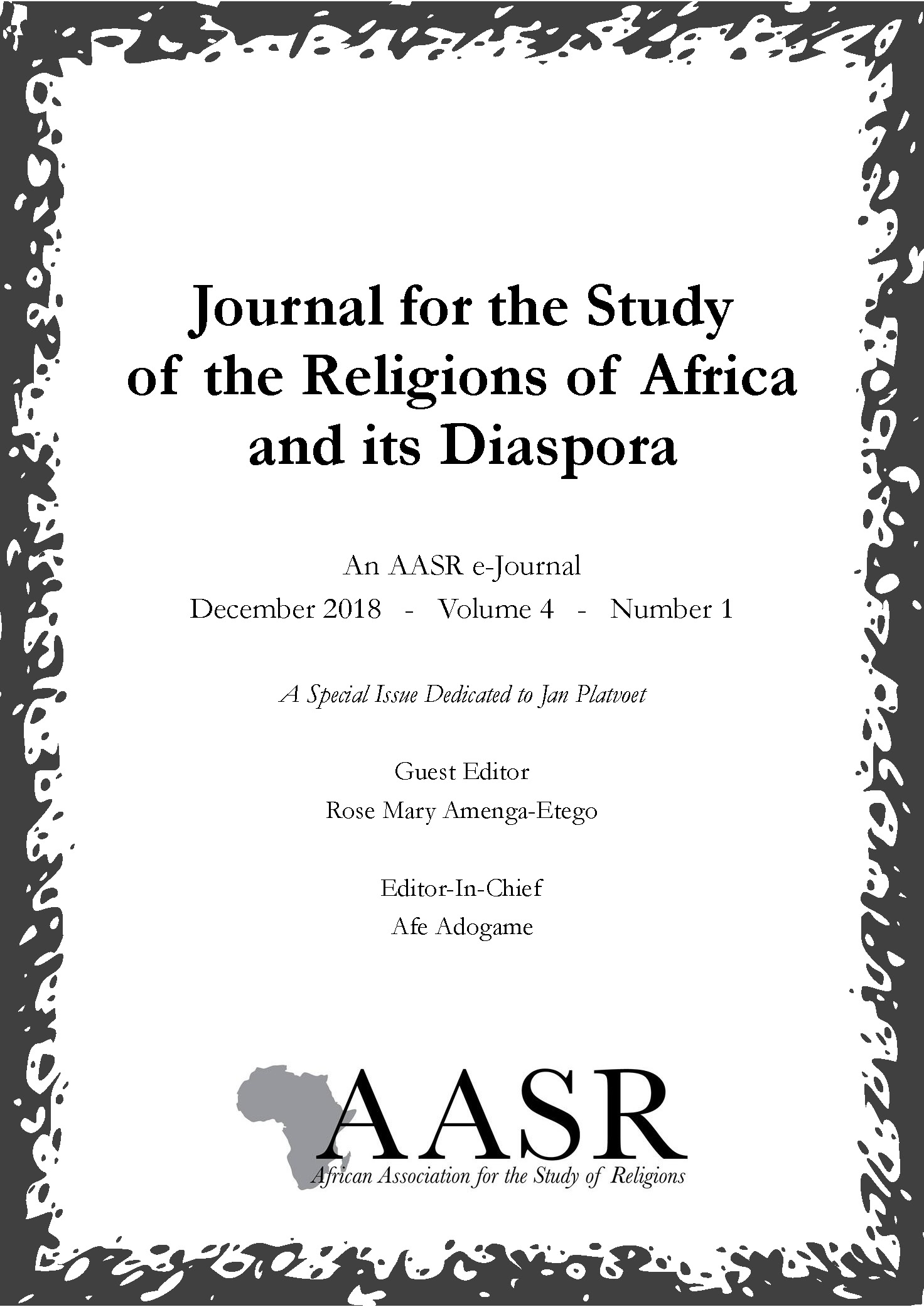Causes of Religious Conflict in Ethiopia
Main Article Content
Keywords
Ethiopia, conflict, religion, fundamentalist, ethnic, Islam
Abstract
This study tried to see the causes of religious conflict in Ethiopia. Participants of the study were drawn from conflict-prone areas of the country, chiefly Muslim dominated areas. Christians of various denominations (mainly Protestants and Eastern-Oriental Orthodox or Coptic Church followers) and Muslims took part in the study. The results of the study showed that the desire to form an Islamic State, religious ethnocentrism, a new Islamic movement, the expansion of Christianity, reversing history and methods of preaching were found as major causes of the conflict. The conflicts are said to have brought destructions which caused the massacre of Christians by Islamic fundamentalists as a result of which, according to the study, forty five people were wounded, properties worth of more than five million dollars were destroyed, about five thousand people were forced to flee their homes, and a considerable number of Christians were forced to convert to Islam.
Article Metrics Graph
References
Afework. Hailu, 2009. Religious Tolerance in Addis Ababa 1991-2008. Institute of Ethiopian Studies: M.A. Thesis, Addis Ababa University.
Alemayehu, G. Mariam. 2013. Ethiopia: Liberating a "Prison Nation", Available from http://www.ethiomedia.com. Accessed in April 15, 2013.
Asnake, Kefale. 2002. Federalism, Some Trends of Ethnic Conflicts and their Management in Ethiopia. The Quest for Social Peace in Africa: Transformations of Democracy and Public Policy. Paper presented at Organization for Social Science Research in Eastern and Southern Africa Seventh Congress, 2002, Khartoum, Sudan.
Assefa, Fiseha. 2006.Theory versus Practice in the Implementation of Ethiopia's Ethnic Federalism. In: David Turton (ed.), Ethnic Federalism: The Ethiopian Experience in Comparative Perspective. Oxford: Eastern African Studies.
Bahru, Zewde. 2002.A History of Modern Ethiopia: 1855-1991. Addis Ababa, Addis Ababa University Press.
Bahru, Zewde. 2008. Society, State and History: Selected Essays. Addis Ababa': Addis Ababa University Press.
Bekalu Atnafu. (2017). Ethnic Federalism and Conflict in Ethiopia. African Journal on Conflict Resolution. 17(2): 41-66. Available at.
Beyagebegnal, Beiminet. 2012. Islamic Radicalism and the Process of Islamizing today's Ethiopia. Addis Ababa.
Braswell, George. 1996. Islam: Its Prophet, People, Politics and Power. Tennessee, Boardman and Holman Publisher.
Chande, Abdin. 2000. Radicalism and Reform in East Africa: In: Nehemia Levtzion and Randall Pouwels (eds.). The History of Islam in Africa. Athens: Ohio University Press.
Creswell, John. 2007. Qualitative Inquiry & Research Design: Choosing Among Five Approaches. London: SAGE Publications.
Dereje, Feyissa. 2006. The Experience of Gambella Regional State.In:DavidTurton(ed.), Ethnic Federalism: The Ethiopian Experience in Comparative Perspective. Oxford, Eastern African Studies.
Dornyei, Zoltan. 2007. Research Methods in Applied Linguistics: Qualitative, Quantitative and Mixed Methodologies. Oxford, Oxford University Press.
Ephraim, Isaac. 1971. Social Structure of the Ethiopian Church. Ethiopian Observer, 5(14): 240-287.
Ephrem, Eshete. 2008. Muslim Fundamentalists in Ethiopia. Silver Spring-Maryland, USA.
Esposito, John, Darrell Fasching, and ToddyLewis. 2002. World Religions Today. New York: Oxford University Press.
Hassen, Indris Salim. 2002. Conflict and Peace in the Sudan. The Quest for Social Peace in Africa: Transformations Democracy and Public Policy, Paper presented at Organization for Social Science Research in Eastern and Southern Africa Seventh Congress, 2002, Khartoum, Sudan.
International Crisis Group. 2009. Ethiopia: Ethnic Federalism and Its Discontents. Africa Report, pp. 1-41.
Hopfe, Lewis, and Mark Woodward. 1998. Religions of the World. New Jersey: Prentice Hall.
Kapteijns, Lidwien. 2000. Ethiopia and the Horn of Africa. In: Nehemia Levtzion and Randall Pouwels (eds). The History of Islam in Africa. Athens: Ohio University Press.
Medhane, Tadesse. 2004. Turning Conflicts to Cooperation in the Horn of Africa. Addis Ababa: Friedrich-Ebert-Stiftung.
Mesfin, Wolde-Mariam. 1971. Ethiopia and the Indian Ocean. Paper presented at the Forum entitled 'The Indian Ocean: Its Political, Economic, and Military Importance', Georgetown University, 1971, Center for Strategic and International Studies.
___________________ 1999. The Horn of Africa: Conflict and Poverty. Addis Ababa: Commercial Printing Press.
Oakland Institute 2014. Engineering Ethnic Conflict: The Toll of Ethiopia's Plantation Development on the Suri People,
Pankhurst, Richard. 1974. Education, Language and History: A Historical Background to Post-War Ethiopia: The Ethiopian Journal of Education, 7(1): 75-79, Addis Ababa: H.S.I University.
Salawu, Burti. 2010. Ethno-Religious Conflicts in Nigeria: Causal Analysis and Proposals for New Management Strategies: European Journal of Social Sciences, 13(3): 345-353.
Shenk, Calvin. 1997. Who Do You Say that I am? Christians Encounter other Religions. Pennsylvania, Waterloo, Ontario: Herald Press.
Shinn, David. 2002. Ethiopia: Coping with Islamic Fundamentalism before and after September11. Africa Program: Center for Strategic and International Studies. Available from:
Tibi, Bassan. 1998. The Challenges of Fundamentalism: Political Islam and the New World Disorder. Berkerey, University of California Press.
Treverton, Gregory F., Heather S. Gregg, Daniel Gibran, and Charles W. Yost. 2005.
Exploring Religious Conflict. Conference Proceedings: National Security Research Division. Available from:
Vidino, Lorenzo. 2006. The Arrival of Islamic Fundamentalism in Sudan. The Fletcher School Journal for issues related to Southwest Asia and Islamic Civilization. Al Nakhlah, Tufts University Woodberry, Dudley. 1989. Muslims and Christians on the Emmaus Road. Zwemer Institute of Muslim Studies
Zeidan, David. 2003. Swords of Allah: Islamic Fundamentalism From an Evangelical Perspective. Waynesboro GA, USA. Gabriel Publishing.
Zelalem, Temesgen. 2010. The 2006 Religious Conflict in Didessa and Gomma Woradas of Western Oromia. Institute of Ethiopian Studies: M.A. Thesis, Addis Ababa University.


